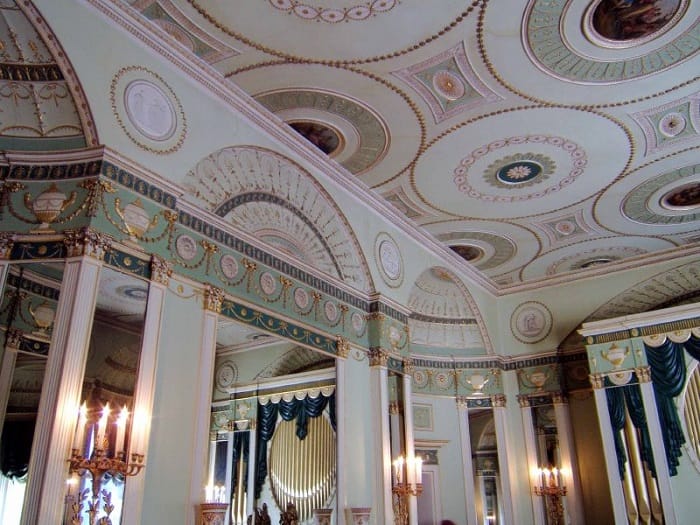Furniture Styles: French Empire, English Regency, and American Classical. Revival essay
The French Empire furniture (1805-1830) style differs from other styles, has its characteristic features which were so common for Napoleon’s period. This style is massive and noble. Napoleon’s passion to majesty marked furniture style of that time: small pieces almost disappeared, massive items with flats surfaces and flat corners prevailed. Empire tables used to be the most notable feature– massive and round, they served as dinning tables. Several new pieces of furniture appeared: such as boat beds decorated only on one side,” the office “Minister” desk, “psyche” mirrors, boat beds with one-side decoration and others. The peculiar features of the furniture were heavy stable legs, marble tops, lack of moldings and bronze fittings. The main wood was mahogany, however, beech, boxwood, marple, olivewood, burled elm and walnut were also used. Napoleon wanted to have the sign of his victories and imperial grandeur even in furniture, so it often had ornaments with military trophies, Napoleon’s emblem, his monogram, etc. The main furniture maker of that time was George Jacob. Together with his brother he organized the family furniture workshop in 1786 and realized Napoleon’s orders and desires. He specialized on the production of veneered case-pieces and seat furniture.
English Regency is a style in furniture which prevailed in England in the period of 1811-1820 and is known as the period of George IV, the Prince of Wales and regent of that period. It was the time of restoration of ancient tendencies in furniture: inheritance of Roman and Greek times. It was classical furniture with classical decorations: lion heads, animal legs, Roman Gods, griffins, etc. The most popular item of that period is a chair. Chairs made of mahogany and rosewood were really fashionable. They used to have horizontal lines, high set arms and concave front legs. Sofas and couches were popular, as well. Moreover, the couch was the creation of the Regency style and was used as day-bed.
George IV had great influence on furniture production and the craftsmen of that period that is why this furniture style got the name after him. He became Regent in 1811 because of his father’s insanity and in three years he spent an enormous amount of money just on furniture – about £160,000. He collected rare pieces of Dutch masters.
Influential designers of that period were George Smith, Henry Holland and Thomas Hope. Hope was that designer who adopted Egyptian and Greek ornament into the English furniture and presented his ideas in his work Household Furniture and Interior Decoration (1807).
American Classical Revival as the furniture style was widespread in America starting from 1815. This tendency came from Europe, however, it had its peculiar American features. Furniture items were bulky and massive – it was also inheritance of ancient Greek and Roman tradition. The main characteristic features of the American Revival are the following: bronze or marble decorations, bold carving, scroll-shaped legs which resembled animal paws, heavy pedestal bases, classical motifs, heavy geometric shapes, etc. The most notable pieces of this period are Klismos chair, scroll-end sofa and settee, canopy beds. In America it was the period of rapid industrialization and it had influence the furniture industry, of course. Machinery allowed producing and selling furniture items for reasonable price, which conditioned the quick and wide development of American Classical Revival. Among remarkable designers of that style are Charles-Honoré Lannuier, an immigrant from France, and Duncan Phyfe. He introduced gilded caryatids on chairs and table underlining elegance of that style. Mahogany was used, as well.
To sum up, despite the fact that all three furniture styles (French Empire, English Regency, and American Classical Revival) have a lot of in common, they have a lot of distinguishing features due to the national peculiarities.
Do you like this essay?
Our writers can write a paper like this for you!



